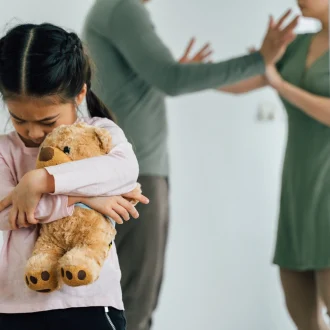Poplar House
How Can I Support You
Systemic Family Therapy
People can feel worried that the suggestion of “needing family therapy” could imply that there is something wrong with them as parents or with their family. Family therapy isn’t about looking for problems within families or blaming certain family members. However, it is about creating a safe place to explore current difficulties together, in a non-judgemental space. The aim is to make sense of the issues together and work in a collaborative way to utilise your existing strengths and resources to potentially find new ways of communicating and being with each other.
Difficult periods in family life can often occur at key “life cycle” events such as after birth, when children leave home or when parents require more care as they age. When families experience unexpected challenges during such periods can also lead to distress. I hope to facilitate opportunities for you to have different types of conversations with each other to support change and improve relationships.
Families may also be recommended to attend family therapy from family courts or by other agencies. Some families are also referred to me by agencies such as CAMHS teams or Social Services. As an experienced psychotherapist, I have many years of experience working with families with a wide range of difficulties including families within CAMHS (community CAMHS, specialist Eating Disorder CAMHS, Specialist CAMHS for Looked After Children and inpatient CAMHS services including Secure inpatient services). I have specific experience and interest in working with blended families, foster and adopted families, LGBT families, and donor-conceived families. I have also gained knowledge and experience working with families over the years regarding navigating differences in religious beliefs and culture within families.
Families may decide to self-refer for family therapy for help around specific issues in their family such as:
Supporting People Through Divorce, Separation and Co-parenting
Systemic family therapy can be very beneficial to support families in navigating the challenges of separation, divorce, co-parenting and the formation of new “blended families”. I can offer support at various points within a family's journey through all these changes and transitions.
Sadly, many parents' relationships can seriously deteriorate during separation and divorce - and unfortunately, children can be caught up in the middle of parental disputes over childcare arrangements and contact.
I have a specific interest and training in working with parents with a high level of conflict post-separation or divorce. I am experienced in working with families where there is alleged parental alienation. Systemic Family Therapy is often the recommended therapy within family courts in the UK when there are high levels of conflict adversely impacting the children or alleged parental alienation.

My priority in this work is always to safeguard the well-being of the children by focusing on the children’s needs, resolving conflict, improving communication and supporting a healthy co-parenting arrangement. I also take self-referrals for this type of work and referrals from solicitors and other relevant agencies.
Systemic Couple Therapy
Sometimes one or both people may feel the relationship is at a crisis point and couples decide to attend more “preventively” to avoid future significant relationship difficulties.
Apart from providing couple therapy as a Systemic Family & Couple Psychotherapist, I have also undertaken additional specialist training in Emotionally Focused Therapy for Couples. This is an evidence-based model grounded in attachment theory, social neuroscience and systemic ideas to support clients find a way through the challenges of their couple relationships. I am also experienced in working with LGBT couples and those who want to explore the impact of different cultural and religious belief systems.

Couples may decide to come to therapy for a range of reasons such as the following.

Supporting Children and Young People
I have over 20 years of experience working within CAMHS services, working with children and young people with a range of emotional and mental health difficulties. I am passionate about working therapeutically with children and young people to enable them to recover from their struggles, regain self-confidence and flourish in their lives. I use a high level of skill in engaging with children and young people with a range of challenges, especially those who are anxious or reluctant to engage in therapy initially. I am skilled in using various therapeutic and creative techniques as well as creating an inviting and relaxed therapy space for children and young people to feel comfortable in. I am trained in specific evidence based models for working with children and young people with eating disorders, depression and deliberate self-harm. I am also trained in an attachment based model for children who have had disrupted early development. Please see more on my additional clinical training here.
Systemic psychotherapy is a NICE-recommended and evidence-based treatment for children and young people with a range of difficulties including the following:
Individual Therapy
I offer individual psychotherapy to individuals for a range of difficulties that could benefit from a systemic approach including the following:


Clinical Supervision and Staff Support
As an Approved Systemic Supervisor, I offer individual and group supervision to systemic psychotherapists, trainees and other professionals requiring supervision of their work with families and couples. I also offer personal learning therapy for students completing their systemic training.
I am also trained in Compassion-Focused Staff Support and experienced in providing Reflective Practice Groups for clinical staff.
Clinical services and training to other agencies

Get in touch
Frequently asked questions
Psychotherapists undergo a four-year, postgraduate, in-depth and experiential training in how to work with a variety of people with a wide range of emotional distress, mental health issues and difficulties. Psychotherapists are trained in one or more psychotherapy approaches. (UKCP)
I am registered with the Information Commissioners Office (ICO) and therefore bound by their guidelines as well as my professional bodies (UKCP & AFT). I have a separate privacy policy which I will need you to read and agree to at the start of therapy. The content of our sessions is confidential but there are limits of confidentiality to ensure clients safety and I will discuss these with you at our first meeting. If I work with family members/individuals separately and together I will not share information with you without gaining consent first. Parents need to appreciate that their child(ren) may need a confidential space where information is not shared, and this is similar for couples.
To ensure your safety, monitor my practice and in line with my professional registration, I receive regular clinical supervision but no identifying information about clients is shared with my supervisors.
I am a member of the UKCP (UK Council for Psychotherapy) and AFT (Association for Family Therapy & Systemic Practice). The high standards of the UKCP register are accredited by the Professional Standards Authority. I am bound by these professional bodies' codes of ethics and practice and subject to their complaint procedures. This includes adhering to their strict standards of clinical supervision of my practice and continued professional development.
The frequency and duration of the therapy will depend on the type of difficulty or problem you are facing and therefore is difficult to anticipate. Generally, I don't see people every week on a long-term basis as it is beneficial for you to have time in between appointments to practice being different with one another.
I may offer weekly or fortnightly sessions to start with to initiate some changes, then sessions may become less frequent. Some people prefer to work with an open contract, whereas others prefer to work with a fixed number of sessions, followed by a review, this is your choice.
© Copyright 2025 for Poplar House Psychotherapy
powered by WebHealer
